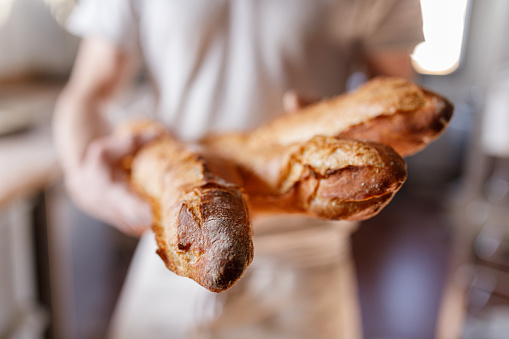(NEW YORK) — The French baguette, beloved by everyone from Michelin-starred chefs to pedestrians on the streets of Paris, has earned a prominent place in food culture history.
The United Nations body, UNESCO, voted to add the staple of French cuisine to the list of Intangible Cultural Heritage on Wednesday.
The decision made by UNESCO experts, who gathered in Morocco this week, came in the wake of a warning from France’s culture ministry of a “continuous decline” in the number of traditional bakeries, with nearly 400 closing each year over the last 50 years.
Plus, U.N. cultural agency’s chief Audrey Azoulay said this distinction honors more than just baguette because it recognizes the “savoir-faire of artisanal bakers” and “a daily ritual.”
“It is important that these craft knowledge and social practices can continue to exist in the future,” Azoulay, a former French culture minister, added.
By adding the bread to this list, the artisanal know-how behind the cherished traditional baguette baking process is a protected one.
What is Intangible Cultural Heritage?
“Cultural heritage does not end at monuments and collections of objects. It also includes traditions or living expressions inherited from our ancestors and passed on to our descendants,” UNESCO explained of the designation. “While fragile, intangible cultural heritage is an important factor in maintaining cultural diversity in the face of growing globalization.”
The importance of intangible cultural heritage is “the wealth of knowledge and skills that is transmitted through it from one generation to the next.”
The French government said it plans to create an artisanal baguette day, called the “Open Bakehouse Day,” to connect the French better with their heritage.
Copyright © 2022, ABC Audio. All rights reserved.


